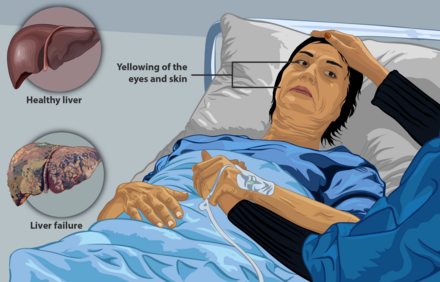
01 Oct Sleep Disturbances Caused by Liver Disease
The liver plays a crucial role in detoxifying harmful substances that come from the food we eat, medications, and waste products produced by the body. Yet, it’s estimated that a quarter of the global population suffers from some form of liver disease, and the rates are steadily increasing. Most liver diseases are chronic, meaning damage occurs over decades, often without noticeable symptoms until significant liver function is lost. This is due to the liver’s remarkable ability to regenerate, although every healing episode leaves behind scar tissue. Common causes of liver damage include chronic inflammation from hepatitis B and hepatitis C infections, excessive alcohol consumption, and prolonged obesity.
Symptoms of Liver Disease
Liver disease can begin subtly with mild symptoms that may be easily overlooked. These early signs include:
-
Fatigue and Weakness: Persistent tiredness that doesn’t improve with rest
-
Loss of Appetite: Reduced desire to eat, often leading to weight loss
-
Nausea
-
Itchy Skin
-
Jaundice: Yellowing of the skin and eyes due to the buildup of waste products like bilirubin in the blood
If not addressed early, liver disease can progress to more severe stages, where the liver can no longer perform essential functions. This leads to:
-
Edema: Swelling, often in the legs, due to fluid retention
-
Ascites: Fluid buildup in the abdomen
-
Easy Bruising and Bleeding: Caused by thinning blood and impaired clotting
-
Red Palms
-
Cognitive Decline: Including confusion, drowsiness, and mental impairment, often signalling hepatic encephalopathy (HE)
-
Circadian Disruption: Altered sleep-wake cycles, leading to insomnia or excessive daytime sleepiness
How Liver Disease Affects Sleep
About 1 in 30 people with mild liver disease will progress to liver cirrhosis, a condition where the liver’s ability to filter toxins from the blood, including ammonia, is severely impaired. When the liver fails to remove ammonia, it accumulates in the bloodstream and can cross into the brain. Ammonia is a potent neurotoxin that damages brain cells, causing swelling and cognitive disruption, a condition known as hepatic encephalopathy.
Hepatic encephalopathy can significantly affect sleep patterns, causing sleep-wake cycle inversion. This means patients may feel awake and alert at night but struggle to stay awake during the day. One of the key factors is the disruption of melatonin, the hormone that regulates sleep. In healthy individuals, melatonin levels naturally rise at night to promote sleep and decrease in the morning to help us wake up. However, in people with hepatic encephalopathy, these rhythms are disturbed. Studies show that cirrhotic patients may spend three times more of the night awake compared to healthy individuals, and they often take up to four naps a day. Furthermore, the sleep they do get is often unrestorative, with reduced deep sleep and as little as 10% of normal rapid eye movement (REM) sleep, which is critical for dreaming and mental restoration.
Prevention and Treatment Options
The best approach to liver disease is prevention. Managing risk factors like obesity, excessive alcohol consumption, and avoiding blood-to-blood contact can significantly reduce the risk of viral hepatitis. For those at risk of hepatitis B, vaccination is highly effective in preventing infection. A liver-healthy diet—rich in fruits, vegetables, and lean proteins while limiting salt and processed foods—can help support liver function and prevent further damage.
For individuals already diagnosed with liver disease, early intervention is key to slowing progression. Recognizing symptoms and seeking regular medical monitoring through blood tests and imaging can help catch complications early. If cirrhosis has developed, medications like lactulose and rifaximin are commonly used to lower ammonia levels in the blood, thus preventing or managing hepatic encephalopathy and helping to stabilize sleep patterns.
References
Wu XN, Xue F, Zhang N, Zhang W, Hou JJ, Lv Y, Xiang JX, Zhang XF. Global burden of liver cirrhosis and other chronic liver diseases caused by specific etiologies from 1990 to 2019. BMC Public Health. 2024 Feb 3;24(1):363. doi: 10.1186/s12889-024-17948-6. PMID: 38310221; PMCID: PMC10837876.
Lau LK, Oldham M. Improvement of sleep architecture parameters in cirrhotic patients with recurrent hepatic encephalopathy with the use of rifaximin. J Hepatol. 2019;71(3):486-494. doi: 10.1016/j.jhep.2019.03.027.
Bruyneel M, Sersté T. Sleep disturbances in patients with liver cirrhosis: prevalence, impact, and management challenges. Nat Sci Sleep. 2018 Nov 2;10:369-375. doi: 10.2147/NSS.S186665. PMID: 30464664; PMCID: PMC6220431.
Liu J, O’Leary J, Lisker-Melman M, et al. Hepatic Encephalopathy. StatPearls. Treasure Island (FL): StatPearls Publishing; 2023. Available from: https://www.statpearls.com

